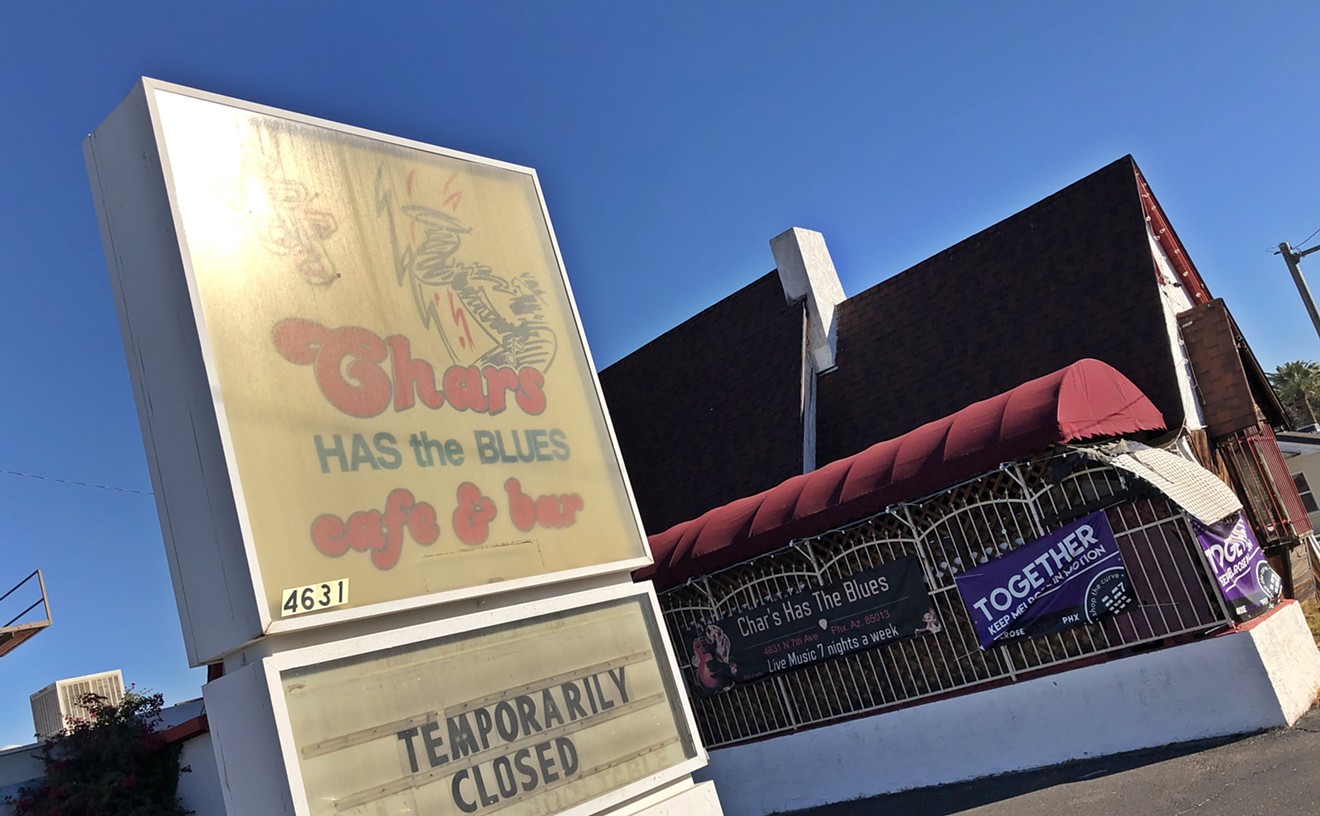Now, though, an album has been issued, and Logan has become the personification of what people mean when they say something is "the shit." He is--to some music writers, at least--the new Dylan, the new Springsteen, the new reason to believe.
And, for once, the music lives up to the hype.
Logan, 35, lives in Winder, Georgia, a small, rural town about an hour outside Atlanta, near Athens. He moved there in 1984 after attending art school in Illinois. He worked at K mart for several years before landing a job about seven years ago fixing electric motors. He wakes up early, leaving his old A-frame each day at about 8 a.m. to get to his job in Atlanta.
"A good day," he says, "is when I get two swimming-pool pumps to fix and no deliveries to make. A bad day is 20 swimming-pool pumps and a bunch of deliveries."
Often, when he finishes work, he gets together at home with his chief enabler, multi-instrumentalist Kelly Keneipp, and others, such as the members of the Dashboard Saviors, and they write songs. They record these songs--lyrics and perhaps a melody line provided by Logan, the music invented by the others--in what they call an "assembly line" procedure. Add a little of this, and move on. The next day, throw in some of that, and move on. Quickly, whole songs come into being. Great songs.
And all of this has been going on for eight or nine years.
"The one constant thing is recording," says Keneipp, who also works with Logan during the day. "And motors, for now. We've been doing this forever--well, since we figured out to use two boom boxes together, to throw one to the other. We've made a little headway in the gear, but, basically, it's the same idea." In a whole different context. A year ago, an indie record company owner finally discovered the Sacred Secret of Winder. And now the idea is that the entire world can hang out in Logan's living room.
The album is called Bulk, a just-released, two-CD, 42-song package. If you've ever thought that rock music contains one shred of human value, you must find, obtain and hear Bulk. The story behind this most startling and compelling debut album is pretty cool, too.
A little more than a year ago, Peter Jesperson, owner of Minneapolis-based Medium Cool Records, began hearing rumblings from Len Hoffman--the manager of Dashboard Saviors, whose Todd McBride knew Logan from their K mart days together--and from a guitarist named Peter Buck, for whom Logan had once drawn a couple of comic books. Jesperson, one of three partners who founded the Twin/Tone label 16 years ago, the guy who discovered, signed and managed the Replacements, created Medium Cool as his own imprint.
"He knew who I was, cause he signed the Dashboard Saviors, and I had worked with Todd at K mart," recalls Logan. "We'd done this so long, and we had put out a couple of little tapes. People weren't beating down our doors. And we didn't figure there was much to it."
But Jesperson persisted in his efforts to elicit a demo tape, repeatedly pleading for recorded originals. "I figured, 'What the hell,'" Logan continues. "We decided to send him something to at least get his comments about it. Then he said, 'You guys should think about making a record.'
"We were pretty excited about that."
The first package Jesperson received contained three 90-minute cassettes, each packed with songs. Jesperson returned to Athens several times, collecting from Logan about 100 recorded songs per visit, and eventually signed Logan and Keneipp to a contract. After he had some 600 tunes, Jesperson began gleaning from them the 42 that are on Bulk.
Then word began to leak out. Billboard editor Timothy White took a prerelease listen and devoted a column to the Georgia musician, noting that Logan's songs are written with "offhand proficiency . . . revealing the dangers and distortions of a myopic spirituality." That's good, apparently.
Plenty of other music writers were also hearing the news out of Winder. Tom Moon wrote a big feature for the Philadelphia Inquirer, and submitted another piece to Musician. The Atlanta Journal provided lengthy coverage. At one point, while visiting the offices of Rolling Stone, Jesperson ran into Stone music editor David Fricke.
"He asks me, 'Hey, got any of that Logan I heard about?'" recalls Jesperson. "I said, 'Nothing I can leave you, but I can play you some stuff.' Fricke says, 'I have time now.' I played four songs, figuring that would hold him. He demands more. I played everything I had with me, like a dozen tunes, and Fricke is banging on his desk, screaming how he wants to write about it."
And then there's David Sprague, whose condescending (yet positive) review of Bulk appeared in Request. "Everybody loves a savant . . ." is how Sprague begins his glowing (in its own snotty way) critique.
For his part, Logan finds all this hyperbolic critical activity a big hoot. "It's really strange," he says in his pleasant drawl. "We're just sitting here laughing. I mean, our lives haven't changed a bit. When we see a huge article, like the Billboard thing, we think it's some joke somebody's playing on us."
A joke it may be, but Bulk is not funny, at least not in the ha-ha sense. There are laughs, but they are the subtle type, the smile that clever wordplay and smart story songs can bring. For example, "Female Jesus," with a melody that'll carry you home, is a sort of twisted love story and character study: "Female Jesus don't walk on water/Lives in town, she's a drunkard's daughter/Uses manners that her mother taught her/No one taught her/To walk the streets with me."
The song begins with one of the most bizarre (and smile-inducing) lyrics around: "Want to drink your blood/Want to wash your feet/Want to feed you every meal/Like it's the last you'll ever eat."
While Logan might be a songwriter's songwriter, don't try telling him that. "I try not to have it complicated to where you try to do these Dylanesque things," he says. "You run into trouble doing that unless you're Dylan."
Logan, in fact, isn't even sure where some of these strange/sad/blissful constructions come from. "I'd have to sit down and think about it. I could write a thesis on it. Or [he chuckles] I might be pressed to get a paragraph." He savors the notion that these tunes will be interpreted in different ways by different listeners.
"Some of the meanings to others are better than what you had in mind."
So what does Bulk sound like? Everything. Two songs sound a bit like Charlie Pickett. (Charlie Pickett?" says Logan. "I don't--wait, did he have a band called the Eggs in the early Eighties? Real gritty stuff?") One uses a Rolling Stones chord progression. (Oh, man, Aftermath. And I remember I had Exile on Main Street on a pink eight-track in my 65 Chevy--the brakes were about to go.") There's some sort-of R.E.M. (They cast a big shadow round here.") Certain vocals are like a calm David Byrne--and Vic Chesnutt, who performs a duet with Logan. (Vic's one of the most amazing songwriters I know.") Logan is being compared, often in the same breath, to everyone from Jim Morrison to Alex Chilton to Mark Eitzel of American Music Club. There's a hard-core blues song. In the liner notes, Logan thanks Flannery O'Connor and Hunter S. Thompson (whose influences are obvious throughout the discs), as well as McKinley Morganfield (known to most as Muddy Waters). That's kind of what some of Logan's songs sound like.
And Logan pulls it off with such charming, Southern panache that the potential swirl of rock stardom seems wholly irrelevant. Enabler Kelly Keneipp, who has known Logan since high school and has musically conspired with him nearly that long, describes the alleged savant this way: "He's crazy. He's a genius." And is Keneipp ready for critical slobbering?
"Can anybody be ready for it? If that happens, we're as ready as we'll ever be. It's kind of thrust on you, and we're not going to resist."
A tour isn't planned for at least several months, but Logan and company are moving right along. "We've been writing a bunch of stuff," Logan says. "I'm so baffled at this point, I have a hard time believing we'll make a second record."
That, perhaps, is where the enablers will come in. "I call em that," Logan explains, "because without them, I probably would have wised up long ago and concentrated on something else. But I've enjoyed every minute of it. If you ask what's the bad part, I'd say there is no bad part. Right now, there's all these little legal things, the music-business part, so we're getting a taste of bad things, but I'm sure it'll all work out.
"If all this ends tomorrow, if this is a fluke, if the second record sucks, it's been worth it.









